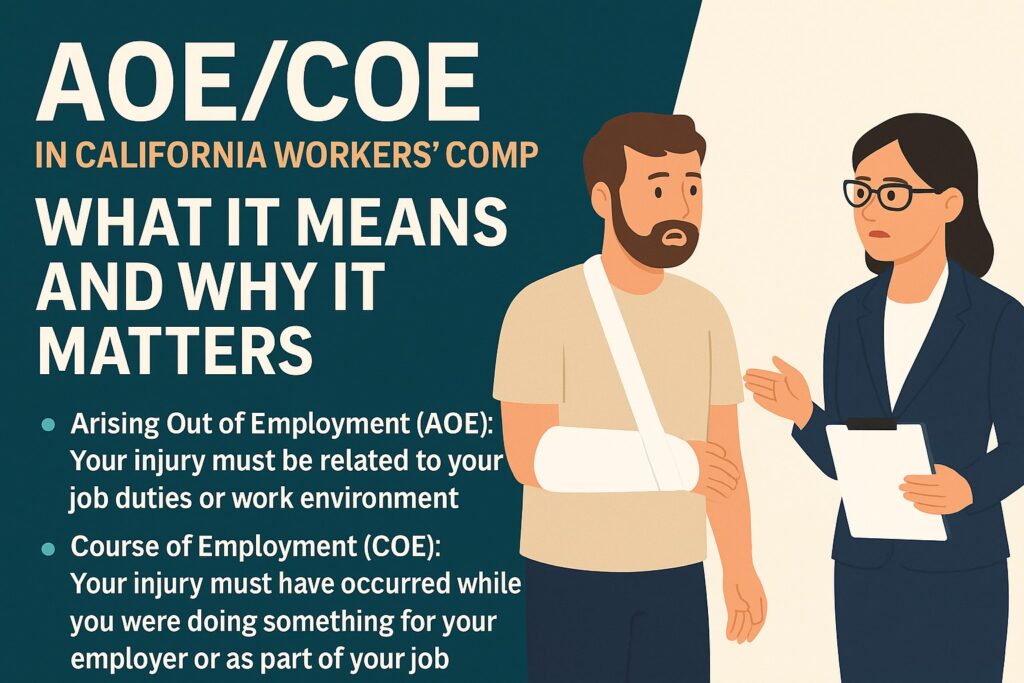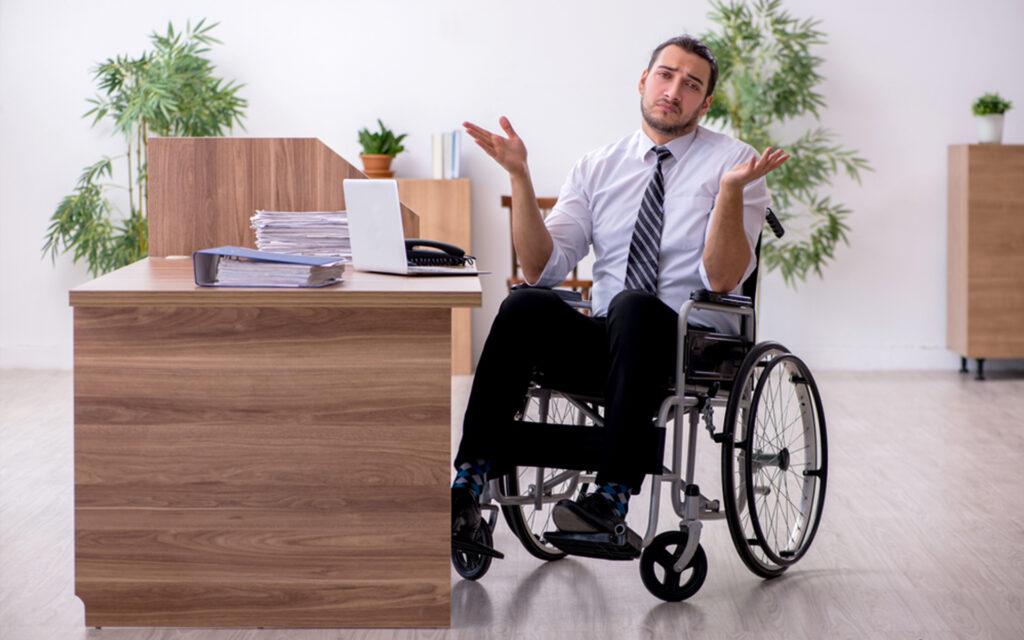
When pursuing a workers’ compensation claim in California, one of the first hurdles you may encounter is the insurer claiming your injury doesn’t qualify. That challenge often hinges on AOE/COE — legal shorthand that determines whether your injury is truly considered work-related under the law.
🔹 What Does AOE/COE Stand For?
- AOE – Arising Out of Employment: This means the injury or illness must be caused by your job duties or workplace environment.
- COE – Course of Employment: This means the injury must have occurred while you were performing tasks for your employer or engaged in activities reasonably related to your job.
Both elements must be present for your claim to be approved. If either is missing, your claim could be delayed, denied, or reduced.
🔹 Why AOE/COE Is So Critical
AOE/COE is the foundation of every workers’ comp case in California. Without it, your:
- Medical care may not be authorized
- Temporary disability benefits may be denied
- Permanent disability rating could be lowered
- Entire case may be dismissed
That’s why it’s often the first thing insurers attack — especially when the injury isn’t clearly visible, happened off-site, or involves repetitive stress or psychological trauma.
🔹 Examples of AOE/COE Disputes
Insurance companies may challenge AOE/COE when:
- You slipped in the parking lot before clocking in
- Your heart attack or stroke had pre-existing risk factors
- Your stress-related psych injury lacks documented harassment
- You were injured during a company outing or lunch break
- You fell at home while working remotely
Even if you were technically working, they may argue your actions weren’t “within the course and scope” of employment — especially if there were no witnesses.
🔹 How to Prove AOE/COE
To overcome these challenges, you need to build a solid factual and medical record, including:
- Detailed doctor’s reports explicitly linking the injury to your work
- Incident reports or eyewitness statements
- Timecards, schedules, or emails showing when and where you were injured
- Job descriptions that confirm your duties align with the incident
- Expert medical testimony to establish causation
For psychological or stress claims, showing a “predominant cause” is work-related (under Labor Code § 3208.3) is key.
🔹 What If Your Claim Is Denied for AOE/COE?
If your claim is denied on AOE/COE grounds, it doesn’t mean the fight is over. You can:
- Request a Qualified Medical Evaluation (QME)
- File for a hearing before a Workers’ Compensation Judge (WCJ)
- Work with a skilled workers’ comp attorney to challenge the decision
In many cases, denial is based on incomplete facts or biased insurance evaluations. We help correct the record.
🔹 Why Choose Employees First Labor Law?
At Employees First Labor Law, we’re experts at proving AOE/COE — especially in complex, high-stakes claims.
✅ Medical Strategy: We coordinate with doctors who understand how to document workplace causation.
✅ Evidence Development: We gather employment records, eyewitness accounts, and workplace policies.
✅ Litigation Power: We aggressively challenge denials through depositions, hearings, and cross-examination.
✅ Full-Scope Representation: We handle both workers’ comp and civil lawsuits when appropriate (e.g., if defective equipment or third-party negligence is involved).
Whether your injury happened in a warehouse, behind a desk, or at home while working remotely, we’ll prove it was work-related — and fight for everything you deserve.
Contact EFLL today for a free consultation. We’ll help you understand your options, avoid costly mistakes, and secure the compensation and care you’re truly entitled to.



